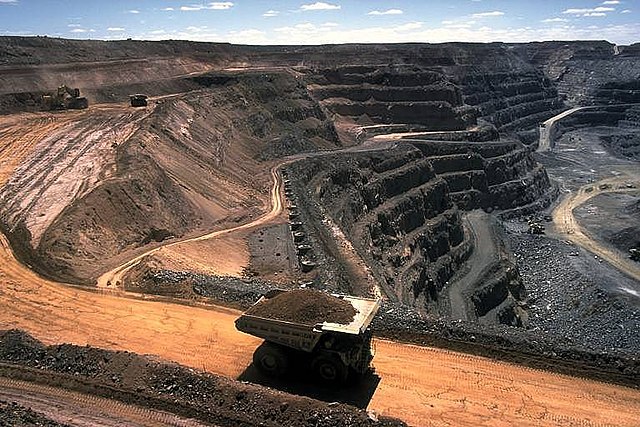Mining is one of the most important industries in the world. However, the impact on the environment, people and local communities can be significant.
It appears to be clear to all operators that this sector must today definitively aim at sustainable goals, e.g., by adopting more efficient technologies and less polluting machinery, optimizing operating processes, reducing the amount of waste produced, assessing the recyclability of some materials, without neglecting the historic impact and significance that the extractive industry has had in the life of a territory, or a community.
Yet, what does it mean to put this change into practice? And, above all, can an industry like the mining sector, which relies on the extraction of limited resources, be ever truly sustainable?
These are the topics addressed in “Sustainability & ESG Environment”, the second episode of Global Trends OTR, the format created by BKT that until June will host every month international experts, operators, and journalists, who will give us an in-depth overview of the current issues and topics in the OTR market.
“Change is a long, step-by-step process. Many companies that have already defined zero-emissions goals for 2030, 2040, and 2050.” – explains the first interviewee, Craig Guthrie, Editor-in-Chief of Mining Magazine, who refers the most-covered topics by his editorial staff. “A mine won’t suddenly be electrified overnight.
It’s a process that stretches over decades. Our big challenge is the spiraling demand for transition metals, such as lithium and copper. We need to balance this demand against the growing pressure to minimize the mining impact and maximize its productivity. But for all the moves to renewable energy – wind, solar – to reduce the use of fossil fuels, we need minerals. Recycling batteries will meet only a tiny percentage of the demand.
In short, we must help the world move from fossil fuels to minerals. From an ESG perspective, what we’re seeing is largely digitalization and automation. The goal is to create completely autonomous, digital, decarbonized, and low-environmental impact mines. Just imagine, for example, a mine where robots are doing the underground work, being operated from a remote operation center: That’s the mine of the future.”
It will be hence essential to reduce the quantities of energy, water, and pollutant emissions required for the mining production, but it will be equally important that companies become increasingly responsible towards the communities they serve. We are talking about the so-called S factor – the “S” in ESG (Environmental, Social, and Governance) – which might include the commitment to providing employment opportunities for local residents, investing in local infrastructure, and creating training and development programs for the community.
Craig Guthrie concludes his contribution by highlighting how companies will have to be more open about their operating methods, as well as about the risks associated with the mining production.
Indeed, the EU has legislation that will soon require better supply chain transparency. One current issue is that public opinion still lumps the mining business together with fossil fuel companies, and this needs to be a central theme of future communication in the sector: “The difference is that we are here to stay, while the use of fossil fuels is going to decline. We need to attract the younger workforce and not be seen as an unsustainable industry that digs a hole in the ground and the stuff out of it.”
Correct information is hence fundamental, just like the path to be adopted by those, who pursue sustainable management strategies. In this stage of change, several entities supporting companies in the transformation towards sustainability have come into being.
Global Trends OTR has chosen to present one of these, namely Miniviro, a British consultancy firm that helps global companies in the commodity sector to assess, quantify and mitigate their impacts.
Its founder and CEO, Robert Pell, is the second guest of the episode. In his interview, he tells how his company provides sustainability plans to their customers, making sure that projects are sustainable across a whole range of risk factors and different impact categories from an environmental perspective.
“Our lifecycle assessment approach is holistic. Basically, what we do is collating all energy, consumption, and emission data. For example, when we work with a battery manufacturer or an electric vehicle manufacturer, there is always the question whether electrification is better than combustion vehicles,” says Robert Pell.
“We focus on quantifying the environmental impacts of producing raw materials for the low-carbon economy, considering the CO2 intensity, taking into account, for example, different equipment, the energy involved in the processing plant, and so forth. We also help companies navigate their impact reduction roadmaps – helping them to identify the levers they can pull to get where they want to be.”
The third guest in the studio is Fabio Novelli, Founder, President, and CEO of NTE Process, a technology, and process consultancy company, which has been working with BKT to help implement sustainable practices at their production site in Bhuj, India. Sustainability goals have been set and implemented, such as the reduction of packaging, CO2, energy, and inputs from fossil fuels.
Furthermore, processes have been renewed: Instead of moving raw materials within the plant in polypropylene bulk bags, the use of reusable mobile silos has been implemented. NTE has, indeed, developed a new patented technology to help with energy reduction.
“We have looked for every opportunity to reduce not just energy, but energy waste. We have set a goal of a 70% reduction,” – underlines Fabio Novelli. “The key for achieving this was a technology called Eco Dense-Tronic. When fully implemented at Bhuj, this technology will save more than 2 million tons of CO2 emissions per year.
In general, we need to remember that we must be sustainable throughout the entire supply chain. This means when companies choose their suppliers, they need to be sure that there is the same attention and focus on sustainability.”
Also Read
Tanzania’s Kakono hydropower plant gets financial boost
Shelter Afrique targets African diaspora in affordable housing delivery

